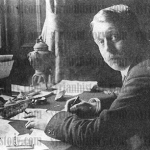In today’s world, where nothing is as it appears to be, and everything is found wrong by the masses and right by the few, democracy is associated with the Utopian idea of the people choosing governments by periodic free and multi-party elections. To put it another way, it is a system of government in which sovereignty is supposed to rest with the people, who either rule others directly, or through representatives.
That is the idea: in the past it was taken more literally as meaning a gathering together of the people in an assembly to debate issues and make laws. But this concept was found unfavourable by kings and the aristocracy and by the great majority of political thinkers.They found it uncontrollable, inexpert and unwieldy. It was also thought of as impossible in any community larger than a city/state.
However, the representative system seemed to solve the problems, though it was severely criticised by one of the doyen of political thinkers – Jean-Jacques Rousseau – who mysteriously enough, is seen as a political theorist of the first magnitude.
It would be as well to remind ourselves at this moment, when the planet is in a parlous state politically, no-one trusts politicians or really wants to vote for them, and dictatorships loom everywhere, that the principal elements of representative democracy are: (a) freedom of speech and expression: this includes television programmes, newspapers and the new information media; (b) periodic free elections to the legislature, which is the law-giving national assembly, in which ALL citizens (not those awarded a vote by any political party) are entitled to vote and/or stand for office; (c) the right to form competing political parties to contest (preferably in a well-mannered way) these elections; (d) a government responsible to the legislature – and therefore responsive to public opinion (Spain please take careful note); and (e) a system of justice in which no magistrate, judge, association of judges, supreme or constitutional court owes allegiance to any political party whatsoever: this clarifies one thing – that any country where ministers of Justice, or the officers of the judiciary are politically affiliated is not democratic.
Where one or more of these five elements are absent, as we saw in the so-called ‘People’s Democracies’ during the Soviet era, where one-party states of the Communist bloc ruled without debate or consensus during a lengthy period after the Second World War, and which we still see in places like Cuba, Venezuela or many Middle Eastern states – the system will not be a genuine democracy, though it might be a constitutional monarchy or principality.
Any developed country which permits a system in which the narrowly defeated party ‘A’ in an election can make itself the winning party by forming pacts with minor parties ‘B’ and ‘C’ is not democratic either, because the people did not give the winning vote to party ‘A’. Such a country is logically not entitled to call itself ‘democratic’.
In the truly representative democracies, the big debate has been whether increased popular participation, via the referendum (or a strike) for instance, might perhaps make those states more democratic in the original (and Athenian) sense.
The advanced capitalist societies are almost all representive democracies (or at least they say they are). On the other hand, huge and rapidly developing states like China (but excluding India) have authoritarian governments, though they lay claim to democratic structure.








Leave A Comment